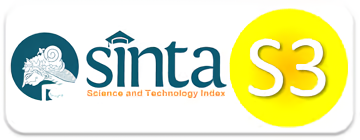Working Remotely During the COVID-19 Pandemic: Efforts of the Ministry of Education in the United Arab Emirates
Downloads
Following the global outbreak of COVID-19 pandemic, work is no longer being conducted in the traditional manner. This has created pressure on businesses to shift into a mode of remote working in order to avoid severe disruption. The United Arab Emirates (UAE) has attempted to face challenges accompanying this crisis and explore solutions with the wise vision and constant support of its leadership. This paper examines the transition of working procedures at one of the most influential entities in the UAE; the Ministry of Education (MOE). The purpose here is to shed light on how obstacles have been turned into opportunities in order for MOE employees to continue working remotely during such critical conditions. This is illustrated by the efforts of ministry departments that were interviewed for their feedback during the study. This paper provides insights into the activation of remote work in response to sudden incidents by highlighting measurements and factors that contribute to entities' readiness for such a transition. This study analyzes the value and originality of MOE remote working practices and their impact on the wider community.
Bailey, D., & Kurland, N. (2002, June). A Review of Telework Research: Findings, New Directions, and Lessons for the Study of Modern Work. Journal of Organizational Behavior, 383-400.
Baker, E., Avery, G., & Crawford, J. (2006, October). Home Alone : The Role of Technology in Telecommuting. Information Resources Management Journal, 19, 1-22.
Bartsch, S., Weber, E., Buttgen, M., & Huber, A. (2020). Leadership matters in crisis-induced digital transformation: how to lead service employees effectively during the COVID-19 pandemic. Journal of Service Management, 32(1), 71-85.
Bishop, A., Riopelle, K., Gluesing, J., Danowski, J., & Eaton, T. (2010). Managing Global Compliance through Collaborative Innovation Networks. Procedia Social and Behavioral Sciences 2, 6466-6474.
Boulin, J.-Y. (2016, September 12). Working time in the new social and economic context. TRANSFER 2/01, 197-211.
Clark, E. (1998). Telecommuting and Working From Home . A Contemporary Renaissance: Changing the Way We Communicate, 21-25.
Dangmei, J. (2016, November). BUILDING TRUST IN A VIRTUAL TEAM: A CONCEPTUAL FRAMEWORK. International Journal of Management and Social Science Research Review, 1(29), 30-35.
Elshaiekh, N. E., Hassan, Y., & Abdallah, A. (2018). The
Impacts of Remote working on Workers Performance. 1-5.
Federal Authority For Government Human Recources. (2020, March 15,). Retrieved from https://www.fahr.gov.ae/en/news/15/3/2020/distance-working.aspx
Felstead, A., & Henseke, G. (2018). Assessing the growth of remote working and its consequences for effort, well- being and work- life balance. New Technology, Work and Employment, 1-18.
Iscan, O., & Naktiyok, A. (2005). Attitudes towards telecommuting: the Turkish case. Journal of Information Technology, 52–63.
Kumar, P. (2014, June). Information Technology: Roles , Advantages and Disadvantages. International Journal of Advanced Research in Computer Science and Software Engineering, 4(6), 1020-1024.
Liao, C. (2017). Leadership in virtual teams: A multilevel perspective. Human Resource Management Review, 27(4), 648-659.
Lukić, J., & VraÄar, M. (2018). Building and Nurturing Trust Among Members in Virtual Project Teams. Jelena M. Luki ć et al. Building and Nurturing Trust Among Members in Vi rtual Project Teams 11 STRATEGIC MANAGEMENT, 23(3), 10-16.
Mehtab, K., Rehman, A., Ishfaq, S., & Jamil, R. (2017, July). Virtual Leadership: A Review Paper. Mediterranean Journal of Social Sciences, 8, 183-193.
Mertens, W., & Recker, J. (2020). How store managers can empower their teams to engage in constructive deviance: Theory development through a multiple case study. Journal of Retailing and Consumer Services, 52.
Ministry of Education in the United Arab Emirates. (n.d.). Retrieved April 2020, from https://www.moe.gov.ae/Ar/AboutTheMinistry/Pages/OrgChart.aspx
Oliver, Z., Schoewe, D., & Lawrence, S. (2016). Attracting Talent Who Can Live and Work Anywhere. RTI International , 1-19.
OLSON, M. (1983, March). REMOTE OFFICE WORK: CHANGING WORK PATTERNS IN SPACE AND TIME. Communications of the ACM, 26, 182-187.
Pierce, R., & Amant, K. (2011, October). Working from home in a globally distributed environment.
United Arab Emirates Ministry of Human Resources and Emiratisation. (2020, March 15). Retrieved from https://www.mohre.gov.ae/en/media-centre/news/15/3/2020/mohre-urges-private-establishments-to-take-precautions-to-protect-workers-from-coronavirus.aspx
United Arab Emirates Ministry of Interior. (2020 , April 4). Retrieved from https://www.moi.gov.ae/en/media.center/News/040101.aspx
United Arab Emirates Telecommunication Regulatory Authority. (n.d.). Retrieved April 2020, from https://www.tra.gov.ae/en/about-tra/tra-initiatives-in-response-to-covid-19.aspx
United Arab Emirates Vision 2021. (n.d.). Retrieved April 2020, from https://www.vision2021.ae/en
Valenduc, G., & Vendramin, P. (n.d.). ICT, flexible working and quality of life. 1-6.
Wang, B., Liu, Y., Quan, J., & Parker, S. K. (2021). Achieving effective remote working during the COVID"19 pandemic: A work design perspective. Applied Psychology, 16-59.
Weinbaum, C., Triezenberg, B., Mezo, E., & Luckey, D. (2018). Understanding Government Telework. An Examination of Research Literature and Practices from Government Agencies.
Wiley Online Library. ( 2005, November 15 ). Retrieved from https://onlinelibrary.wiley.com/doi/epdf/10.1002/job.356
World Health Organization. (2020). Retrieved April 2020, from https://www.who.int/health-topics/coronavirus#tab=tab_1
Copyright notice:
- Authors retain copyright and grant the journal right of first publication with the work simultaneously licensed under a Creative Commons Attribution-NonCommercial-ShareAlike 4.0 International License that allows others to share the work with an acknowledgement of the work's authorship and initial publication in this journal.
- Authors are able to enter into separate, additional contractual arrangements for the non-exclusive distribution of the journal's published version of the work with an acknowledgement of its initial publication in this journal.
- Authors are permitted and encouraged to post their work online (e.g., in institutional repositories or on their website) prior to and during the submission process, as it can lead to productive exchanges, as well as earlier and greater citation of published work (See The Effect of Open Access)
















